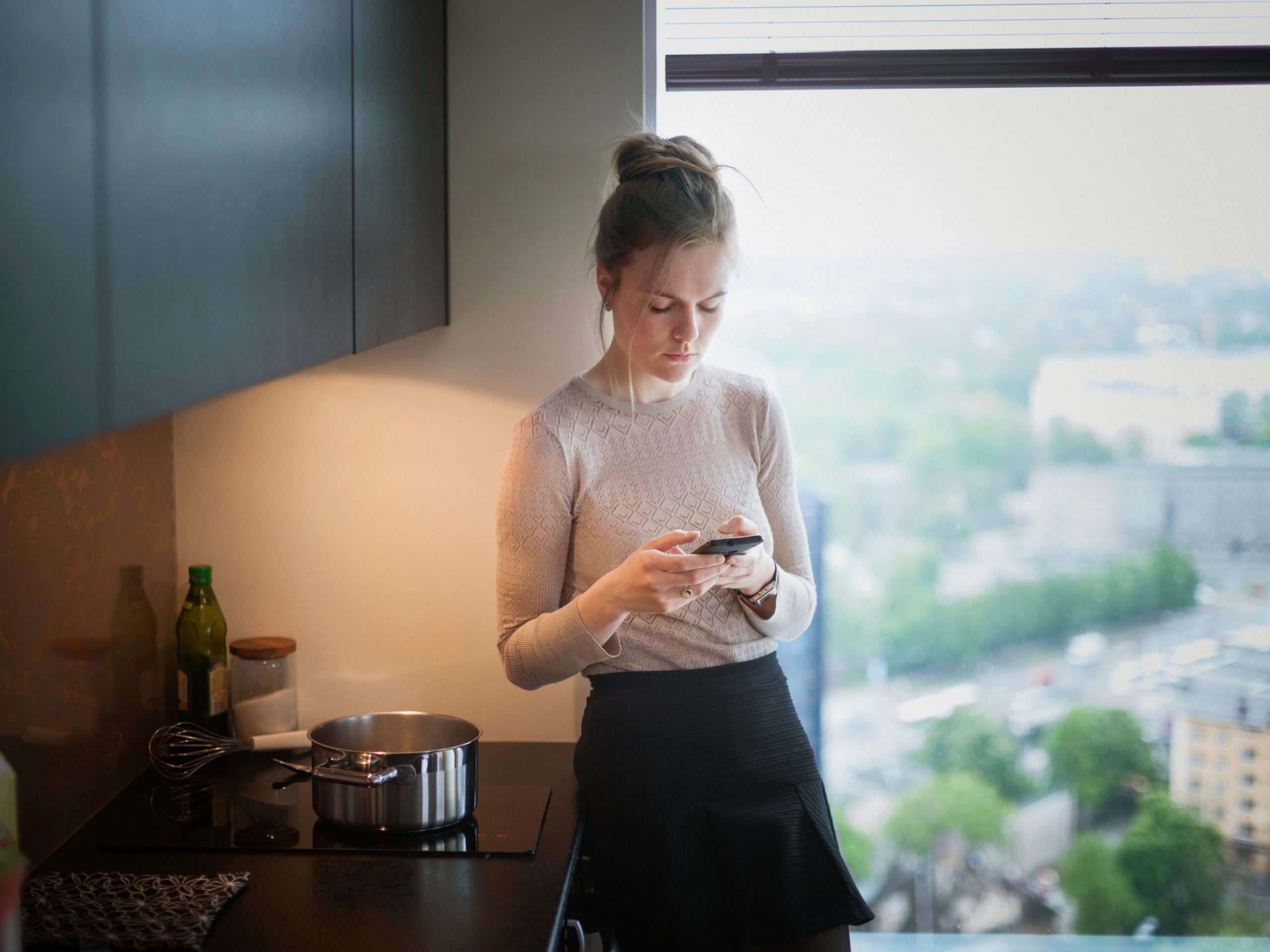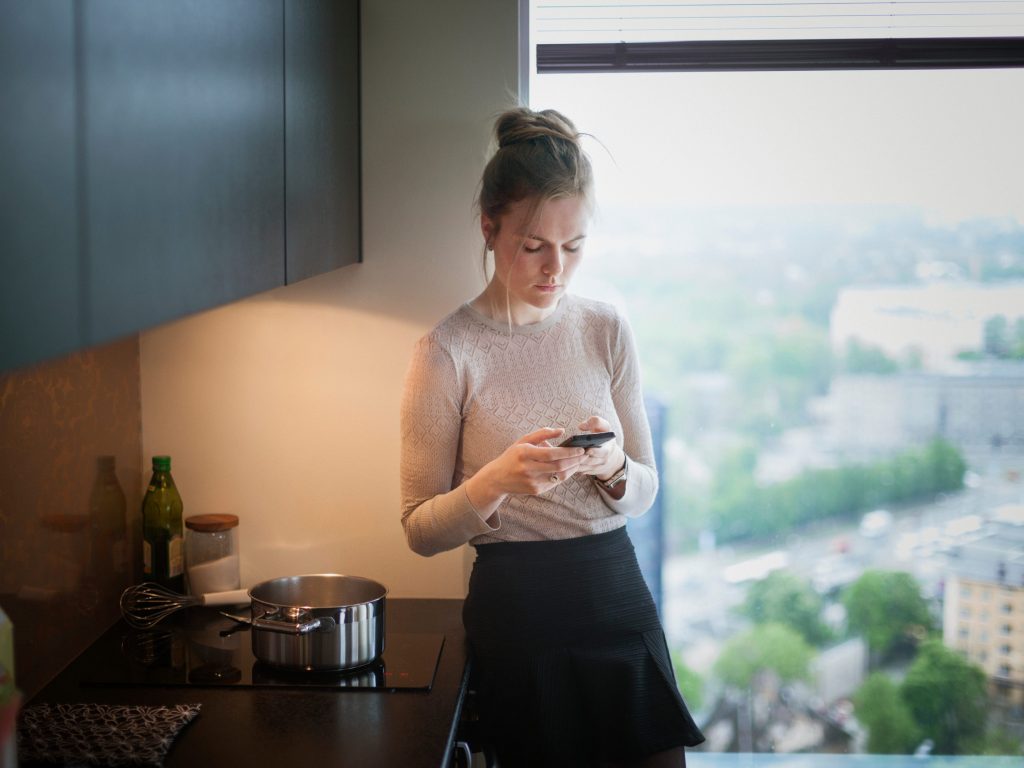
Mikael Vaisanen/Getty Images
- Apps like Instagram can be just as harmful to older users as experts argue they are to teens.
- I quit the app cold-turkey several months ago after becoming addicted to Reels, its short-form videos.
- The detox made me feel lighter and more in control. I don't plan on going back anytime soon.
Earlier this month, a whistleblower testified in Congress that Facebook's suite of social media is harming teens, in particular teenage girls. But they aren't the only ones that can fall prey to apps like Instagram – I learned this lesson several months ago.
It all started when I discovered Reels, or Instagram's answer to TikTok that launched last year
While I don't have TikTok, the hype around the Chinese short-form video app drew me to test its copycat – which, due to having less of a following, often features popular TikTok trends.
Slowly, or maybe all at once – time moves differently when you're sucked into the vortex of social media – I started spending more and more time on Instagram than I ever had before.
At first, it was fun. I watched influencers unpack their favorite Amazon purchases, cute dogs flop on couches or zoom around living rooms, and comedians making fun of 9-to-5s and millennials. Friends and I passed clips back and forth via DM. I grew up during the rise and fall of Vine, so it was easy to get pulled back into the allure of quick videos.
But then an hour on my phone started turning into two, into four. I'd stay up late without meaning to, lose whole afternoons originally dedicated to chores. I began having trouble falling asleep, that same verse from Dua Lipa's "Levitating" replaying in my head. I tried using the iPhone screen-time limit to curb my usage, to no avail.
Many sleepless nights and wasted hours later, I decided the best course of action, for my sanity and schedule, was to quit cold turkey and delete the app
In the immediate aftermath, I felt relieved and proud of myself. That relief, however, began to shift to panic days later. Friends and family members would mention posts I'd missed and FOMO would kick in. Occasionally, my hand would hover over where the app used to be on my phone screen. Several times I thought, maybe I'm ready to go back - I'd make it to the App Store before begrudgingly changing my mind.
To get by, I'd remind myself how terrible coming out of a Reels binge felt - the headaches, the frustration when I finally looked up at the clock. I used the time I got back to read, clean my apartment, watch movies with my partner, activities that I counted as real self-care. Eventually, I started to feel lighter, more in control.
Three months since I made the decision to cut myself off, I've missed important engagement announcements from my cousin and several college friends and direct messages from old coworkers I haven't seen since before the pandemic. But I've also made it through books that used to take me months to finish, become a morning person by getting to bed earlier, and taken up running more frequently (I'm now training for my first half-marathon!). I also make more of a conscious effort to see people in person - and after a year and a half stuck indoors with just my partner, that's never felt more precious.
I deleted my Facebook and Snapchat alongside Instagram, so with the exception of Twitter, which I use for work, I'm essentially 'off the grid' social-media wise
But leaving social media doesn't mean completely escaping it, not when everyone else around you is online. My partner has kindly offered to screenshot stories that show what's going on in a friend's life - a new puppy, a move to a city abroad, a gathering I couldn't attend. It stinks to miss those little details, but I tell myself if something's truly important it'll find its way to me, social media be damned.
I do have a confession to make: Around August, I relapsed while on a trip to Italy. It felt weird not to share something so big with my followers, especially when that's all I've done for the better part of my adulthood. I was on briefly before I knew I had to get off again, so briefly that some acquaintances wondered whether I'd even gone to Italy or was playing a joke on them. But I've yet to redownload it and probably won't redownload it again for some time.
I miss the social aspect of social media the most
I've accepted the fact that this small hole in my social life is mainly on me. I'm an adult who needs to learn how to set boundaries - but I also wonder how much easier it would be for me to set them if I wasn't faced with an addictive algorithm that promotes infinite scrolling and videos that autoplay.
I also remember Instagram's older days, when the most you could get out of the app was the latest posts from people you'd chosen to follow. I didn't love the person I was back then, comparing my life to those of my friends and acquaintances. But changes like replacing the notifications tab and "new posts" button with the "Reels" and "Shopping" tabs pushed users like me away from connecting with their friends and toward consuming and buying.
I like many parts of Instagram and want to believe that one day I'll build up the strength to use it only for those aspects that bring me joy: seeing pictures of people I care about going about living life. Or better yet, maybe one day Facebook might change the app to reprioritize those social features.
But like a kid who can't be trusted not to stick her hand in the cookie jar, I don't trust myself to practice restraint. Best to keep it on the top shelf until I do.
